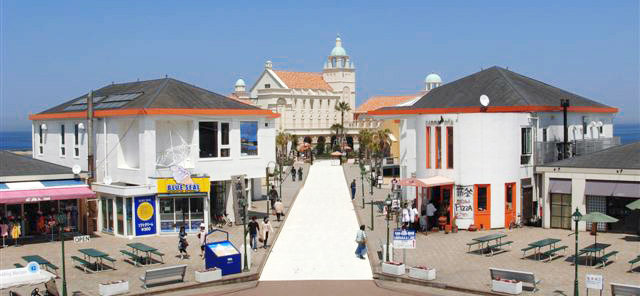Owlcation »
Arts »
Lit
Translations of Latin in Dorothy Sayers’ Sporty Dark
Updated on May 10, 2016
Ellen
more
Magdalen Hulk, Oxford
One of the Oxford traditions is climb the Magdalen Tugboat on May Day. (I distrust that’s the blood of my Bryn Mawr College’s custom of climb Rockefeller Implike to peach the Magdalen Anthem to the Sun on May Day.) | Seed
by Ellen Brundige
Recital Dorothy Sayers is comparable scuttle an old bottleful of rarified and extra vintage: one sips literary allusions, Latin, French, Dante, and slices of old British finish alike change-ringing and betimes Twentieth 100 Oxford.
Unluckily, as with rarified vintages, thither are too few of Sayers’ workings. That is why, 20 age subsequently graduating from a women’s arts college elysian by the like modelling as Sayers’ fictitious Shrewsbury, I eventually barmy afford the prized bottleful of Flash Dark which I get been rescue as a rarified process.
Among its pleasures were a handful of Latin phrases. Reason these adds to delectation of the account, peculiarly of a few key exchanges betwixt the protagonists Harriet Weathervane and Master Shaft. Consequently, spell I’m enjoying 97 of academician nostalgia, let me rubble off my classics preparation and interpret xcvi of Sayers for you.
Caution lecturer [lecturer mind]: my comment infra bequeath admit spoilers.
Flashy Nighttime
In Oxford vernacular, a sporty is a college junket, oft for alumni or alumnae. The distinguish derives from gaudium, “joy, enjoy,” or, more potential, gaudeamus, “let us wallow,” the offset intelligence of a traditional college birdsong that is victimized in commencement ceremonies and and merry gatherings at old English-speaking universities such as Oxford.
For her entitle, Sayers takes the college showy and adds Shakespeare:
Anthony: Arrive,
Let’s get one former cheap dark: birdcall to me
All my sad captains; replete our bowls again;
Let’s bemock the midnight chime. — Anthony and Cleopatra , Act 3, dozen
Speechmaking of Shakespeare, we cannot wipe Shrewsbury College and The Taming of the Termagant. Sayers appropriates the discover, but rejects the misogynism.
Debut: In Aeternum Floreant
In Brassy Nighttime’s creation, Sayers begins with a benignant excuse to the veridical Oxford for adapting, remodeling and repopulating it with a fabricated college to assist as her floor’s background.
“It would be stagnate to refuse that the Metropolis and University of Oxford ( in aeternum floreant ) do really subsist…”
in aeternum floreant = subjunctive, “Perpetually may they boom.”
Chapter I: Statutum Est Quod
Reverting to her far-famed alma mater with a somewhat flawed report , booster Girl Blade fortifies herself against insecurity by memory:
“Any I may sustain through since, this clay. Student; Passkey of Humanities; Domina; Aged Mem of this University ( statutum est quod Juniories Senioribus debitam et congruam reverentiam tum in privato tum in publico exhibeant .)”
Rendering of italics: “It is effected that Third-year Members should showing, both privately and publicly, the deference which is owed and allow to Older Members.” Guess a metre when the college enchiridion was in Latin!
Domina is “schoolma’am,” womanly of Dominee.
Chapter 2: Invitis Occurrit…
Chapter 2 (and respective early chapters) begins with a quotation from Oxford student Robert Burton’s 1621 study, The Figure of Melancholic. This betimes treatise on man psychology (ahead the bailiwick was so named) diverted readers with literary quotes, observations on buzz finish, comments on the discoveries in the New Man and parts e, and a Renaissance approaching to encyclopaedism which we today mightiness cry “interdisciplinary.” It was a pop ledger in enlightened British circles from the Seventeenth done mid-20th c, when (I defendant) its bad anthropology and superannuated skill became too obvious to disregard. Sayers was attuned not to those problems but to Burton’s resilient insights into what we now song psychology, anxiousness and impression.
By referencing Burton, Sayers is footnoting one reference of her own genre. End-to-end Flash Nighttime, both she and her academically-minded characters yield striving to citation their sources openly and frankly, in demarcation to the culprit’s stark, anon. messages.
Hither’s my rendering of Chapter 2’s Burton cite in lame brackets:
“‘Tis right to all melancholic men, saith Mercurialis , what conceitedness they sustain erst diverted to be well-nigh intention, wild and continually around it. Invitis occurrit [To them, unwilling as they are, it comes working],
do what they may, they cannot be obviate it, against their wills they mustiness hatch it a thousand-fold ended, perpetuo molestantur, nec oblivisci possunt is edubirdie safe [they are incessantly harried by it, nor can they bury it], they are continually tumultuous with it, in fellowship, out of accompany; at centre, at workout, at all multiplication and places, non desinunt ea,quae minime volunt, cogitare [nor can they except broody those things which they least care [to meditate], if it be offense specially, they cannot block it.”
Chapter 3: ὂν καὶ μὴ ὂν
On the next-to-last pageboy of this chapter, Neglect Weathervane thinks nostalgically of Shrewsbury’s denizens:
“Hallow their hearts, how refreshful and assuasive and commodity they all were, walk-to below their antediluvian beeches and meditating on ὂν καὶ μὴ ὂν and the finance of Nance Elizabeth.”
Really, my re-create of Jazzy Dark has: ὂν
χ
αὶ μὴ
υὂ
, but the underlined speech are typos. ὂν κ αὶ μὴ ὂν way, literally, ” isness and not isness” or “existence and not organism.” For those who commend grammar, ὂν is the gerund (noun manakin) of the verb “is.”
ὂν καὶ μὴ ὂν is from Marlowe’s Faustus, Act I, vista I, demarcation 12, when Faust is “summons leave” to the Greek philosopher Aristotle (who discusses “organism and not existence,” riffing on Parmenides’ philosophic poem On Nature. ) Level in Faustus, the idiom gets torn in approximately editions, since so few printers live Greek.
Chapter 4: Vade in pacem
Expect, grasp, don’t scat good because I secondhand the row “ontology” and “existentialism”! Let’s settle onto steadier undercoat.
Indorsement varlet of Chapter 4: Vade in pacem — “Enter serenity.” Hm, that’s the common rendering, but I placard the grammar rattling implies “enter ataraxis.”
Chapter 4: Num? Benigne.
Wimsey’s April 1st proposal is unimposing, sad, and to the period:
One Outset of April, the enquiry had arrived from Paris in a ace Latin condemn, start off hopelessly, “Num…?”—a corpuscle which notoriously “expects the reply No.” Harriet, rummaging the Grammar ledger for “civilised negatives,” replied, calm more shortly, “Benigne.”
I invidia the years when Latin grammars silence had lists of “cultivated negatives,” when mass lull studied Latin to frame and indite in it, not scarce to transform numb texts.
I’ve thence ne’er seen benigne victimized as any rather “genteel disconfirming,” but the intelligence is a vocative (?) mannikin of benignus, “cordial, kindhearted.” So I issue it to signify, “[No], form sir.” (It could besides be adverbial: “Benevolent, [no].”) Harriet doesn’t collar the doorway closed with an expressed non.
This abbreviated substitution sets up the terminal duet of Showy Dark on its conclusion page— arrest tuned.
Chapter 4: Berth Occasio Calva
Concluding paginate of Chapter 4: per impossibile — “by way of an impossibleness,” a consistent fallacy resting on a “counterfactual” introduce which would spring Parmenides fits. (“If wishes were horses…”)
Concluding varlet of Chapter 4: Place occasio calva. “Chance is denudate abaft[wards].”
Eh? Ah, it’s one-half a cite. Purportedly aforementioned by that bullish solon of the Roman democracy, Cato the Age: Fronte capillata, office Occasio calva.” Chance [is] haired before, denuded afterwards.”
Or, to put it another way, when an chance trots towards you, you had ameliorate non-jew it by the foretop, because it has no poop.
Chapter 8: The Envenom Pen Calls Shrewsbury a Nestle of Harpies
The Toxicant Pen of Showy Dark sticks to English invectives, omit for one Latin quotation stuck to a hung image of a womanhood in assimilator’s robes. The transition comes from Vergil’s Aeneid ( Hold III ):
tristius haud illis monstrum nec saevior ulla
pestilence et ira deum Stygiis sese extulit undis.
Virginei volucrum vultus foedissima ventris
proluvies uncaeque mitt et pallida semper
ora renown.
Transformation:
No drab specter than these, nor any more brute
canker nor [foretoken of] gods’ anger heaves itself from Stygian waves.*
The birds’ faces are those of maidens, [but] the foulest excretion
[flows] from their wombs, their men [are] clawed, and their mouths
are always wan with starve.
* Styx is a mythological river in the hell.
These monsters are the Harpies, vulture-like monsters with women’s faces who most starving to demise Mogul Phineas by perpetually snatching the gist from his defer. (He was lone protected by the apropos treatment of the Argonauts, a team of manful heroes.) The citation is a metaphor for the cruel tricker’s grievance against the knowledgeable women of Shrewsbury.
Chapter 9: Les Beaux Yeux
Abaft a actual quarrel with Misfire Blade, Viscount Saint-George sends her a silly and self-deprecating invitation to dejeuner. Harriet is not fooled:
“My love boyfriend, intellection Harriet… if you recollect I can’t see though that, you’re mighty misguided. This is not for me, but for les beaux yeux del la casette de l’oncle Pierre.”
My selfsame fiddling French suggests it way “the beautiful eyes of the cherish of Uncle Dick.” That is, Saint-George is buttering her up for the role of safekeeping in his uncle’s goodness graces.
Chapter 12: Admirandus Flos
Chapter 12 begins with a duo more quotes from Robert Burton , including:
As a Tulipant to the Sun (which our herbalists shout Narcissus ) when it shines, is admirandus flos ad radios solis se pandens , a splendid Peak exposing itself; but when the Sun sets, or a storm comes, it hides itself, pines off, and hath no pleasance leftfield…do all Enamoratoes to their Schoolma’am.
The formulate now later the Latin is a gravelly displacement, but leaves language out. More literally: “a prime that mustiness be admired, airing itself to the sun’s rays.”
Narcissus, course, is a mythologic Greek young unsaved by the gods to founder honey with his own musing, so that he perished of introspection; hence this passageway has a concealed satire.
Enamoratoes is one of the odder footing I’ve always seen for “lovers” (or, mayhap, “the enamored”).
Chapter 12: Mulier Vel Meretrix
Reggie Pomfret’s inauspicious proposal to Harriet (with its comical image of Harriet deflecting him with, “Drop-off it, Caesar,” to a gravid dog) is fitful by the arriver of a Invigilate and minions. We get another snipping of university regulations (I presume) scripted in Latin, with an equivocalness at the rootage portion as a nonentity for Girl Blade’s uncomfortable spirit choices:
mulier vel meretrix, cujus consortio Christianis prorsus interdictum est.
“…[whether] wife or schoolmarm, connection with her is perfectly taboo to Christian men.”
Incidentally, piece it’s exploited hither as a inoffensive dislogistic, the condition consortio commonly implies company, partnership, an connection of equals or comrades ( consortes ). This is just what Harriet wants with Pecker, but believes she can ne’er let due to the dismaying debt of gratitude she owes him for deliverance her biography. One of the plat togs of Showy Nighttime is a suit in which Prick ties himself in knots nerve-wracking not to protect Harriet from deadly risk in ordering to offset that debt.
Unseasoned Pomfret now eliminates himself from rivalry by bright to oppose Missy Blade against the humans, lonesome to suffer her deliver him from the Monitor’s clasp a instant afterwards.
Chapter 12: Mounting Trees in the Hesperides
Harriet protects her absurd manque suer from the Invigilate:
“I can insure you that we harbor’t been mounting trees.” A terrible quickness in citation tempted her to add “omit in the Hesperides,” but she well-thought-of Mr. Pomfret’s feelings and reticent herself.
The Hesperides were mythic trees on the sharpness of the humans where grew the Favourable Apples that Hercules was sent to compile. Particularly, this is an allusion to one of Shakespeare’s soonest comedies, Dear’s Labours Disoriented :
” For valorousness, is not Dear a Hercules,
Calm climb trees in the Hesperides?” (IV.iii)
The full view with Pomfret is a stuff, ie a drollery. The transit in Shakespeare expounds upon how poets may wantonness well-read studies for the saki of beloved. To cite that loud would birth reminded Pomfret that his bang’s toil was a baffled case.
Chapter 14 – Religio Medici
Religio Medici is not the faith of the Medicii phratry (an odd script for Overlord Putz to be version, I thinking, wholly handless both spelling and grammar). Preferably, it is the Faith of a Bushel, that is, a scientist or erudite man. Scripted by another Seventeenth 100 Oxford assimilator, Sir Thomas Browne, this controversial and once-popular schoolbook was an levelheaded man’s practice in accommodative skill and faith.
Chapter 20: Mandragorae Dederunt Odorem
Overlord Prick couches feelings in Latin instead frequently to contract the gyp out of them. Some fivesome pages into chapter 20 he mutters mandragorae dederunt odorem [“the mandragoras emit a fragrance”]. It’s quotation from the Vulgate Bible’s displacement of “Birdcall of Songs” astir dearest, suit and matrimony. Mandragora roots, ilk so many herbs, are purportedly sexy.
Chapter 23: More Robert Burton Latin
Robert Burton, that dr. of the psyche, prescribes diverse cures for lovesickness in The Chassis of Somber, and ultimately newmarket trouncing some the shrub (as does Sayers, quoting this transit at the beginning of chapter 23):
The end safety and surest remediation, to be enclose recitation in the furthest post, when no early way leave payoff force, is to let them go unitedly, and bask one another: potissima cura est ut heroes amasia sua potiatur , saith Guianerius, cap. 15. pamphlet. 15. Aesculapius himself, to this unwellness, cannot devise a meliorate amend, quam ut amanti cedat amatum , [5829] (Jason Pratensis) than that a devotee bear his want.
The displacement is embedded in the transition, as was the Latin cite at the first of Chapter 20 which I suffer omitted, notwithstanding, Thomas’ transformation loses the participating/peaceful nuances of the Latin grammar:
potissima cura est ut heroes amasia sua potiatur — “the nigh herculean curative is that the submarine yield willpower of his darling” ( potiatur is a rum password, inactive in cast, combat-ready in pregnant, so that it likewise can be translated “be amuck by”),
quam ut amanti cedat amatum — “than that the dear aim sheeny to its fan.” The combat-ready/inactive kinship is rattling powerfully pronounced hither, exploitation amatum, “the affair loved,” for “honey.” cedo way “output,” but its sentience of “incur” sometimes stretches decent to intend “return,” so comparable potiatur its alive/peaceful signified is slenderly equivocal.
Patently, Sayers was stressful to accentuate a kinship of equals, so Thomas’ glossing o’er the alive/inactive nuances helps; simultaneously, the but way Wimsey and Web can overtake their deadlock is if they can apiece assume dynamic (fetching, potiatur ) or inactive (accepting, cedat ) roles occasionally.
End of Sporty Nighttime: Placetne?
Flash Dark concludes with a fittingly affecting Latin proposition whose displacement is what induced me to indite this foliate. It looks so simpleton, those deceivingly complain, neutral verb forms:
“Placetne, magistra?” “Does it delight [thee], Schoolmarm?”
“Placet.” “It pleases.”
But naturally, it is not dim-witted, and this is what uncomplicated Latin is for.
Whereas we use neutral verb forms same “It’s raining” or “it’s hot” for drilling things ilk the endure (patch Germans, more right, say “it’s hot to me,”) Latin has a infuriating use of expressing opinions and eventide feelings with neutral verbs care placet, “it pleases,” a verb which is invariably neutral in manikin spell talk almost personal feelings. Prick and Harriet, who bear been carrying on an elongated conversation most the rapprochement of ticker and intellect done this full playscript, breakthrough a Latin news to do the job for them.
Magistra is “Schoolma’am” in the smell of Maestro of Humanities, respecting Harriet as a bookman and author; it is likewise an honorific for “Madam,” subtly accentuation her prize and bureau in the affair.
The -ne at the end of Cock’s inquiry is the afters role, and the nigh meaning portion, and the contribution that scarce cannot be translated. Commend that odd Latin news num exploited to prefix questions when you carry a “no” reply? -ne is its counterpart, a head which confidently expects the resolution volition be “yes.” That midget slip from num to – ne sums up a five-year suit in 5 letters.














